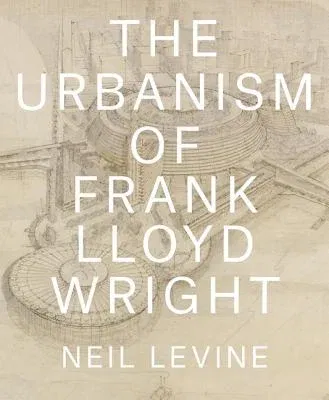A landmark book on the architect's designs for remaking the modern
city
This is the first book devoted to Frank Lloyd Wright's designs for
remaking the modern city. Stunningly comprehensive, The Urbanism of
Frank Lloyd Wright presents a radically new interpretation of the
architect's work and offers new and important perspectives on the
history of modernism. Neil Levine places Wright's projects, produced
over more than fifty years, within their historical, cultural, and
physical contexts, while relating them to the theory and practice of
urbanism as it evolved over the twentieth century.
Levine overturns the conventional view of Wright as an architect who
deplored the city and whose urban vision was limited to a utopian plan
for a network of agrarian communities he called Broadacre City. Rather,
Levine reveals Wright's larger, more varied, interesting, and complex
urbanism, demonstrated across the span of his lengthy career. Beginning
with Wright's plans from the late 1890s through the early 1910s for
reforming residential urban neighborhoods, mainly in Chicago, and
continuing through projects from the 1920s through the 1950s for
commercial, mixed-use, civic, and cultural centers for Chicago, Madison,
Washington, Pittsburgh, and Baghdad, Levine demonstrates Wright's place
among the leading contributors to the creation of the modern city.
Wright's often spectacular designs are shown to be those of an
innovative precursor and creative participant in the world of ideas that
shaped the modern metropolis.
Lavishly illustrated with drawings, plans, maps, and photographs, this
book features the first extensive new photography of materials from the
Frank Lloyd Wright Foundation Archives. The Urbanism of Frank Lloyd
Wright will serve as one of the most important books on the architect
for years to come.

